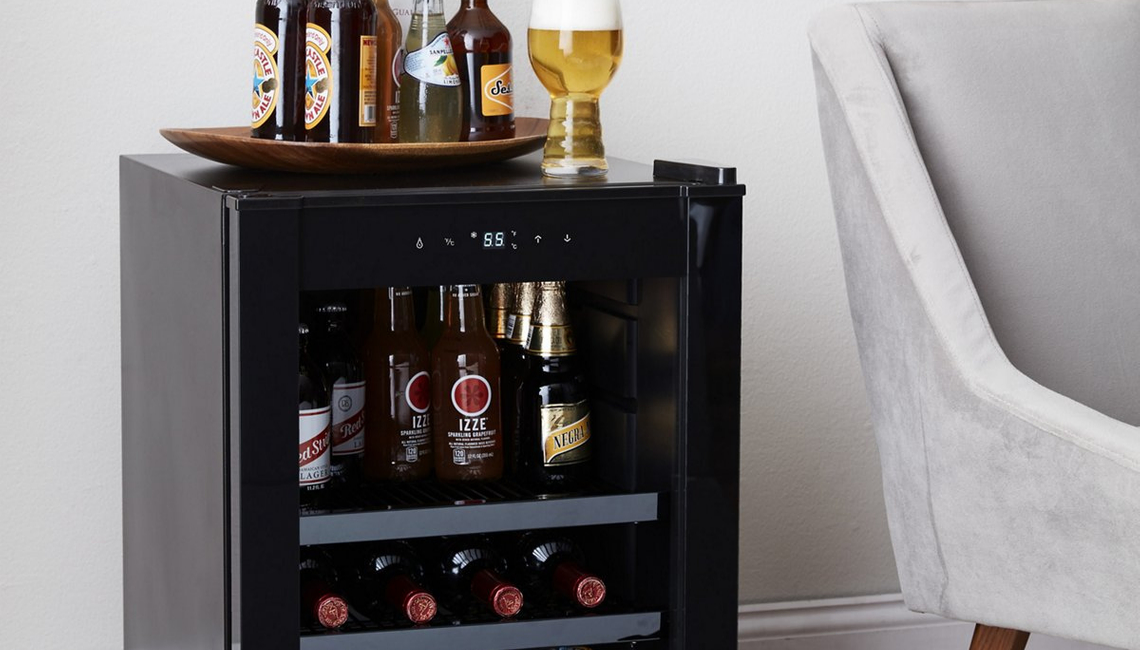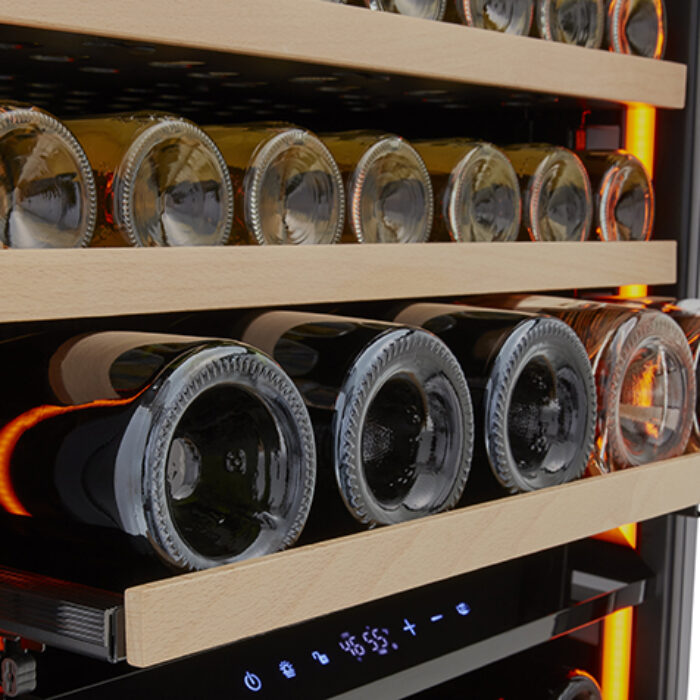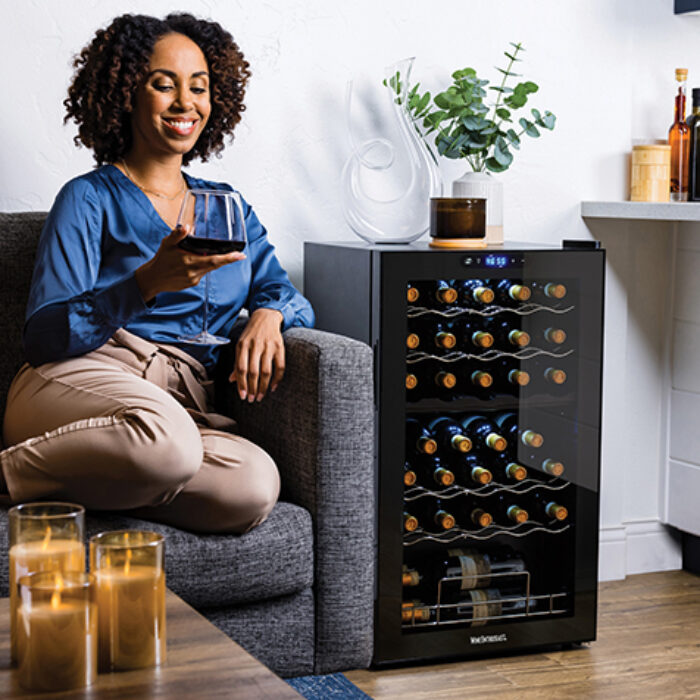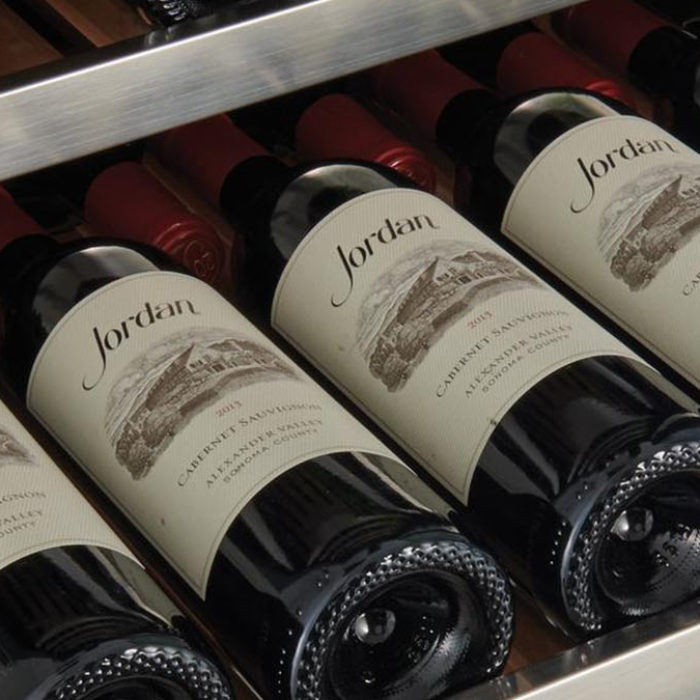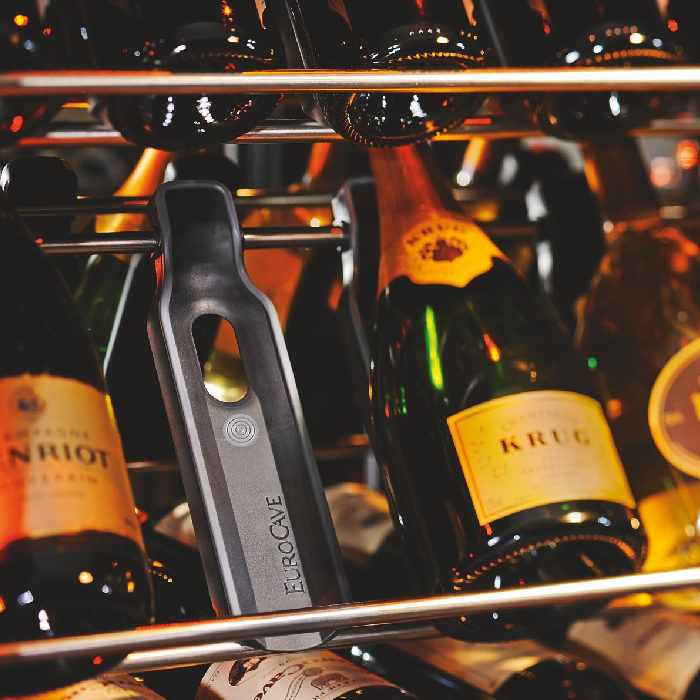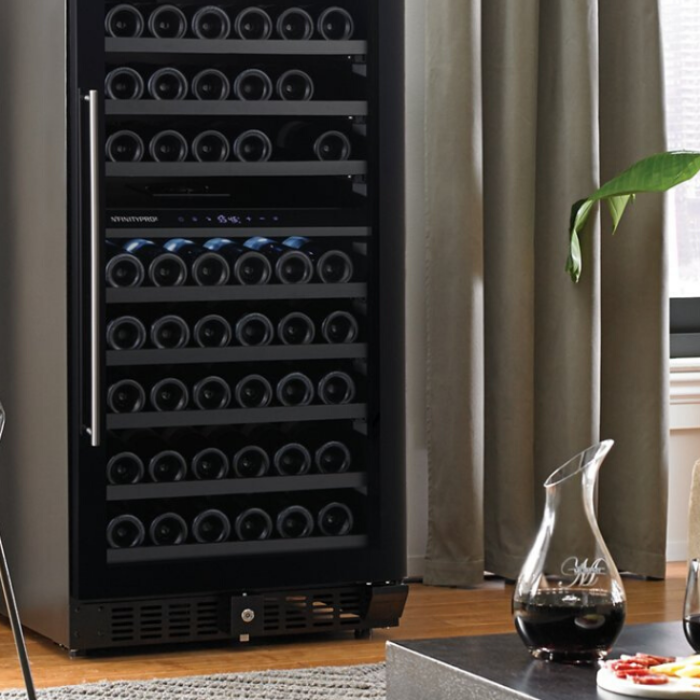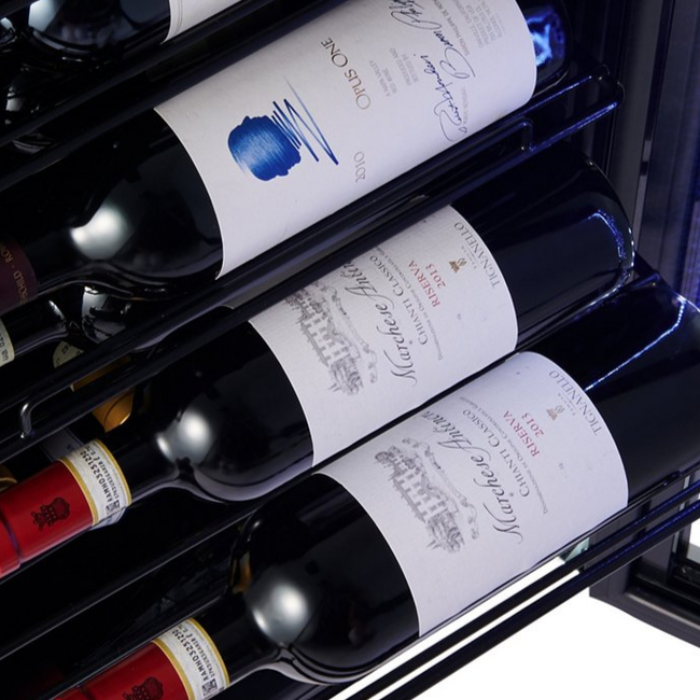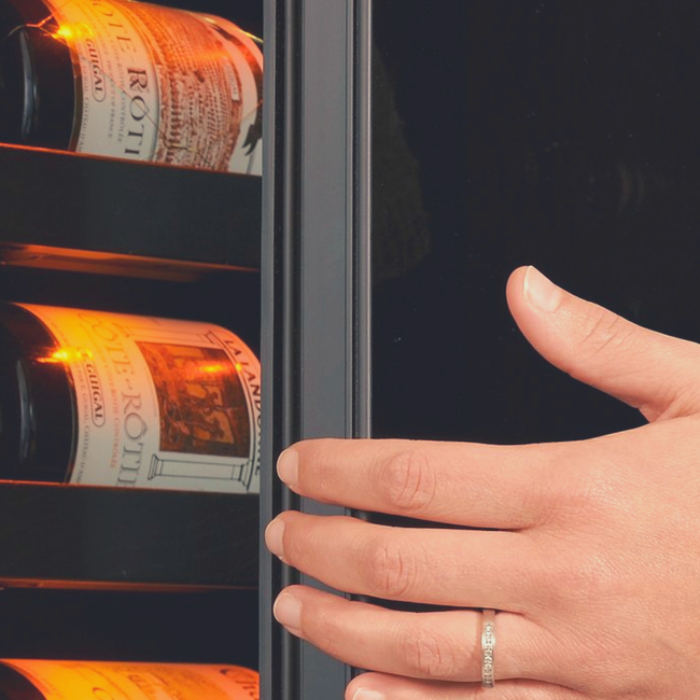WINE REFRIGERATOR BUYING GUIDE
Temperature, humidity, and vibration are the key distinguishing factors between conventional refrigerators and wine refrigerators. Without delving into the fascinating world of evaporator coils and sensors, it’s easy just to say that a regular fridge is designed to drop temperature rapidly and drive out humidity, whereas a wine refrigerator/cellar is designed to lower temperature gradually and maintain a level of humidity conducive to wine storage. Essentially, they have two different functions. An everyday fridge is made to keep a wide variety of perishables cold and dry, so salad, bread, baloney, and beer all live happily together in an average temperature of 40°F—too cold for the fragile makeup of your wine, and too dry to keep corks moist. Why is it important to keep corks moist? A soy-stained carton of leftover Chinese may be one answer.
Prevailing odors, in addition to cold and dry conditions, can adversely affect wine in a regular refrigerator. It’s possible to get a hint of Kung Pao Shrimp in your Pinot Noir if left on the same shelf too long. How could this happen? If the cork in your Pinot bottle shrinks and becomes porous, due to the lack of humidity, and lets surrounding odors seep into your wine. Remember, conventional refrigerators are made to suppress humidity, not sustain it. High-quality wine cellars such as EuroCave are engineered to maintain ideal humidity levels so corks stay moist and impermeable, not allowing air to seep in and spoil the wine.
Another “enemy of wine” present in conventional refrigerators is vibration. Unlike thermoelectric wine refrigerators, all-purpose refrigerators run on compressors which cause vibrations that interrupt wine’s maturation process, not to mention make a mechanized racket. Some wine cellars and non-thermoelectric wine refrigerators run on compressors too, but they have a special vibration absorption system to reduce the impact of tremors and noise, allowing wine to mature at a natural pace.

